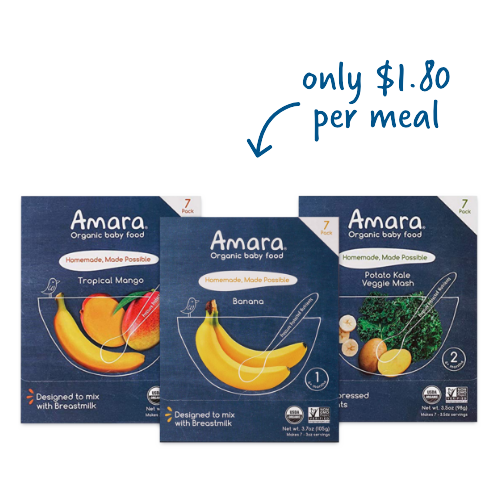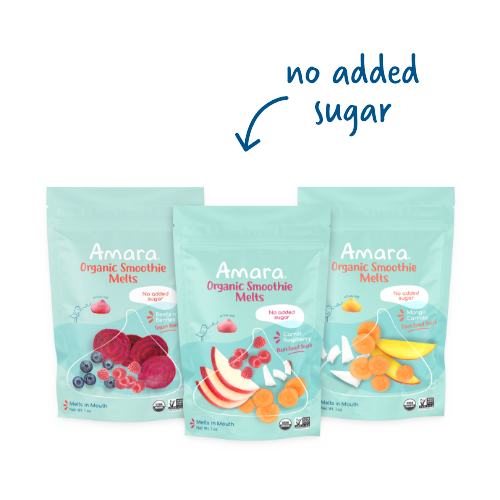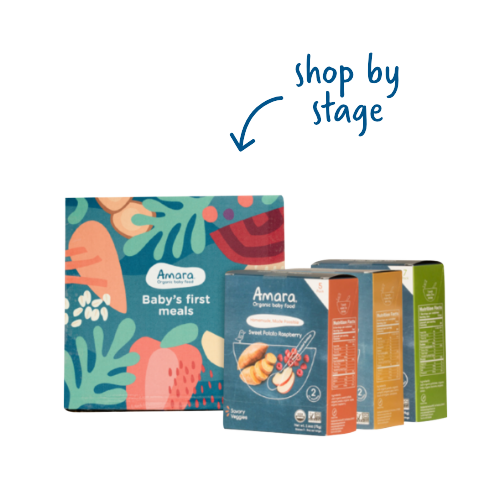
Did you know that baby food looks, feels and tastes different all around the world?
It’s true: in America, certain things probably come to mind when we think of “baby food” (boxes of rice cereal, baby food jars, peas, carrots…), but feeding babies is a cultural script. Much like so many other parenting norms and trends, what’s “normal” in one place may be bizarre in another, and vice versa.
Around the world, it’s more common that baby’s first foods actually reflect any given culture’s native cuisine. In fact, the very concept of separate “baby foods” or “kid foods” doesn’t really exist in many other cultures, and children — including babies — are raised to eat what their families eat. As Dr. Alan Greene explains it: “in many cultures around the world, babies simply eat a gentler version of whatever their parents are eating.” *And this includes things we tend to think of as “inappropriate” for babies, such as bitter vegetables, soups and broths, meats, and spices.
This practice^^ stands in stark contrast to norms in the U.S., where we typically introduce babies first to, well, foods no one actually (wants to) eat (have youtried rice cereal and jarred peas???). And while most of our first foods for babies are bland and lacking in flavor, texture and nutrients, many first foods around the world expose babies right away to the flavors and tastes that are central to their ways of eating.
For example, recommendations in Germany suggest starting out with a meat-veggie-potato puree; in Japan, parents offer their babies rice, fish, and pickled vegetables; in France, diverse vegetables are at the center of babies’ plates; in Kenya, where vitamin A deficiency is a common problem, sweet potatoes (packed with vitamin A) are a classic first food.
This is all cute and fun (really, it is — check out the chart below for a little tour!), but it also speaks to a broader predicament: the first months and years of eating solid foods are crucial for establishing healthy eating habits and flavor/taste preferences. Other cultures have figured this out, andthey feed their children how they want them to eat right from the get-go (and their children, generally speaking, grow up to prefer and enjoy traditional dishes and more healthful eating practices). In comparison, the traditional American approach to starting solids is laying the foundation forless healthy, diverse and flavorful preferences.
It’s not ideal…

A point: babies don’t need to eat “special foods” — and they can benefit SO greatly from early and frequent exposure to a wide variety of fresh, flavorful foods. Ideally, they’re eating the same healthy foods we parents are eating ourselves. (For more on how parents influence baby’s eating, read here.)
The distinctly American approach toward starting solids stems from many factors (not least of which include formal medical recommendations from the AAP and decades of cultural conventions favoring processed foods), but thankfully we’re starting to see some newfound appreciation for the importance of these first experiences with eating — because the early years offer a window of opportunity to lay the foundation for healthy eating.
We at Amara know all this and are dedicated to bringing families first foods that prep babies for flavorful, healthful eating right away. Our babies and children all deserve to eat the same nutritious, delicious and diverse foods we hope they’ll love to eat as they grow up; and all of our organic baby food blends are made to deliver just that. Amara baby food offers the same bright flavors, varying textures, and full nutrient profile of traditional homemade foods without sacrificing convenience or breaking the bank. It’sreal food for babies — not “baby food” — and it’s changing our children’s palates one plate at a time. Simply add water or breast milk, mix and serve! Click to learn more. 😊

Check out these traditional first dishes for babies from around the world:
|
Country/ Region |
Most Common First Food for Babies |
|
China |
Xifan, a rice porridge, paired with mashed fruits, soft vegetables, tofu, seaweed, eggs or fish |
|
Japan |
Rice cereal and radish; miso soup; rice porridge served with veggies and dried fish |
|
India |
Cracked wheat porridge followed by khichdi, a mushy rice-lentil-vegetable dish often spiced with cumin, coriander, cinnamon or mint |
|
Middle East |
Hummus and baba ganoush |
|
Mexico |
Rice, beans, and soups — sometimes topped with seasonings such as lime or chili powder; fresh fruits like papaya and avocado |
|
South Africa |
Corn porridge and fish |
|
Thailand |
Khao tom (rice soup) |
|
Germany |
Pureed potatoes, vegetables, and/or meats |
|
United Kingdom |
Rice cereal, pureed vegetables, fruit |
|
Vietnam |
Brothy soups and fibrous porridges prepared with fish, meat, or vegetables |
|
France |
Vegetables(!) like leeks, spinach, endive, or beets, as well as soups and fine cheeses |
https://www.huffpost.com/entry/what-babies-eat-around-th_b_4338355
https://time.com/what-kids-eat-around-the-world-in-one-week/







Leave A Comment